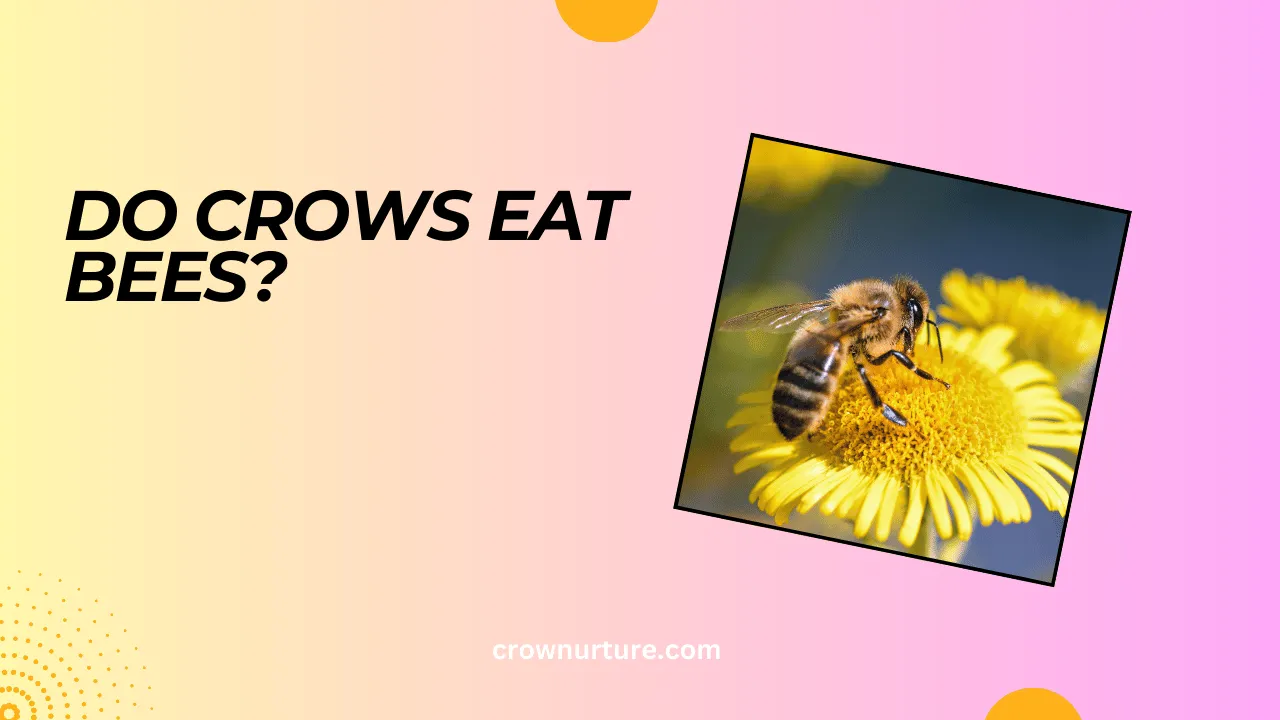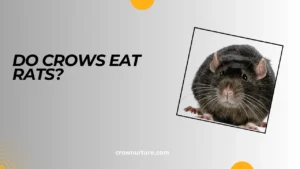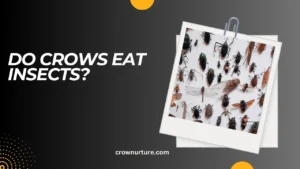Crows are often seen as intelligent and resourceful birds, capable of adapting to almost any environment. Their ability to thrive in urban and rural landscapes alike has made them a familiar presence around us.
But have you ever wondered if crows might prey on bees? While bees are typically seen as safe from many predators due to their stingers, crows may pose a significant threat when food sources become scarce.
Yes, crows can and do eat bees, though they don’t make them a regular part of their diet. These opportunistic feeders will take advantage of any available food source, and bees—especially when they are buzzing around a beehive—are no exception.
This behavior raises important questions about the effects of crow predation on bee populations and, consequently, on the ecosystems that depend on these vital pollinators.
In this article, we will delve into how crows interact with bees, the impact of crow predation on bee colonies, and strategies to mitigate the consequences of these interactions.
By understanding these dynamics, we can better appreciate the balance required to protect both crows and bees in our ecosystems.
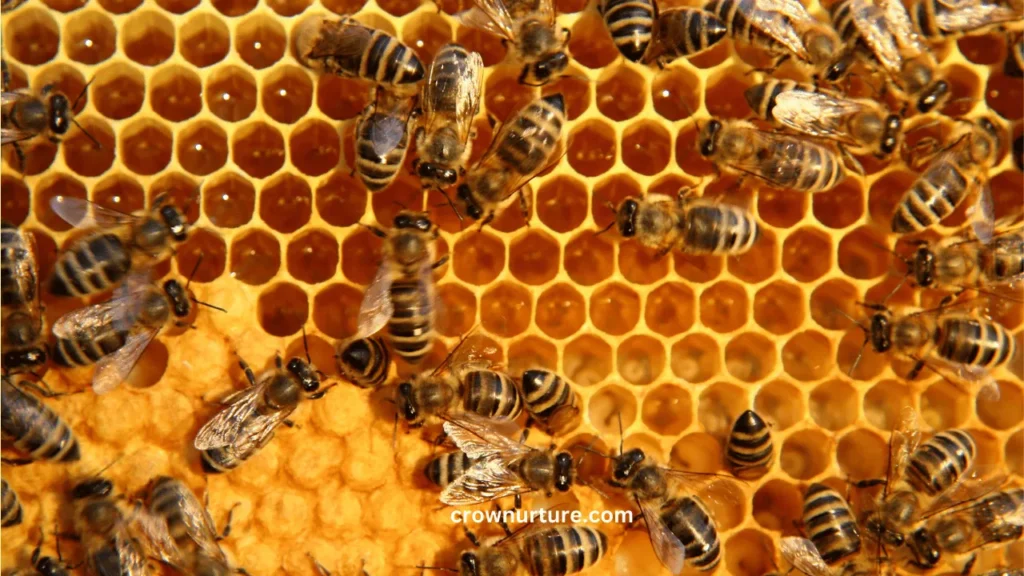
Contents
1. Crow Diet: A Diverse Palette
Crows are omnivores, meaning they have a diet that varies greatly depending on what’s available. From insects to fruits, seeds, carrion, and even small vertebrates, crows will consume almost anything that provides nutrition.
Their opportunistic nature means they are quick to exploit any available food source, especially when resources are limited. If bees become an easy target, they won’t hesitate to capture them in flight or raid a beehive.
Though not a staple in their diet, bees can be a convenient snack, especially when crows encounter them near the hive or during their regular foraging.
2. Crow Predation on Bees
Crows can directly prey on bees, either by capturing them mid-flight or by raiding hives to feed on both the bees and the honey. This type of behavior is more likely when food sources are scarce, and the hive is an easily accessible target.
While crows can directly consume bees, their mere presence around hives can lead to indirect harm. Stress caused by crows may reduce the overall health of a bee colony, leaving it more vulnerable to disease and predation.
In some cases, crows can transmit diseases between bee colonies by interacting with weakened hives, exacerbating the strain on bee populations.
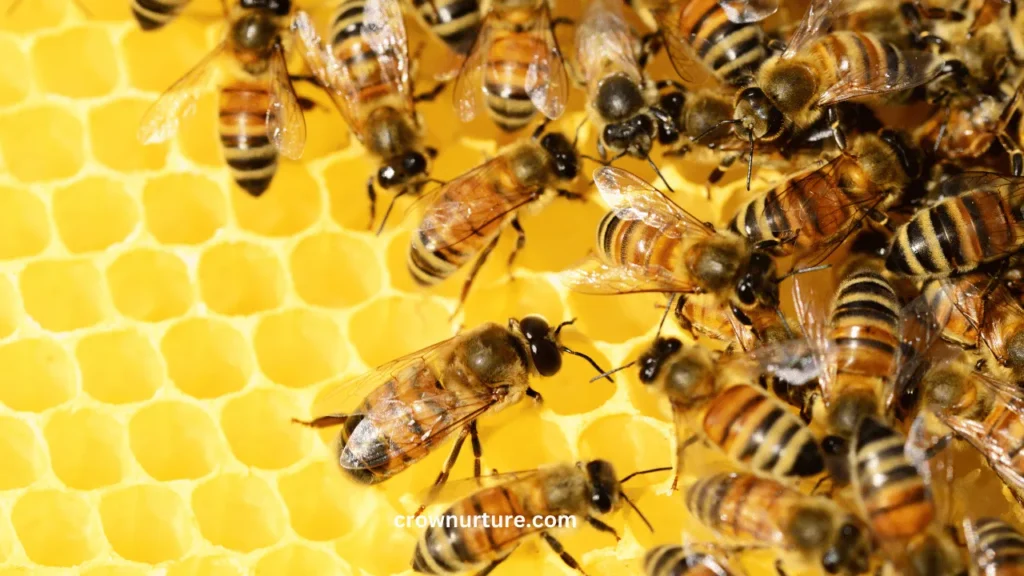
3. Factors Influencing Crow Predation on Bees
Several factors determine the likelihood of crows preying on bees. Food availability is a major influence; when other food sources are plentiful, crows are less likely to target bees. However, in leaner times, crows will opportunistically exploit whatever they can find.
The health of the bee colony also plays a role. Strong, healthy colonies are more resilient and able to defend against predators, while weaker colonies may be more easily attacked.
Additionally, habitat factors, such as the proximity of crow roosts to beehives, can impact the frequency of crow predation. Areas with dense crow populations near bee colonies may experience higher rates of predation.
4. Impact on Bee Populations
Crow predation on bees can have a significant impact on local bee populations, especially when beehives are repeatedly raided. In areas where crow populations are large, this predation could add to the stresses already faced by bees, including pesticides and disease.
The decline of bee populations can have far-reaching consequences, affecting pollination and ultimately food production. Bees are crucial to the health of many plants and crops, so any threat to their population could ripple through the entire ecosystem.
While crows are not the primary threat to bees, they can exacerbate existing pressures, highlighting the fragility of our ecosystems and the delicate balance needed for their survival.
5. Mitigating the Impact of Crow Predation
To protect beehives from crow predation, beekeepers can use physical barriers like netting or mesh to prevent crows from accessing the hives. Additionally, deterrents such as scarecrows, shiny objects, or noise-making devices can discourage crows from getting too close.
Habitat management is another approach. Reducing the number of crows in certain areas by altering their roosting sites or limiting food availability can help decrease predation pressure on bees.
Finally, conservation efforts that focus on protecting both bee populations and their habitats are essential. Promoting bee-friendly farming practices and supporting the health of local ecosystems will ensure that bees continue to thrive, reducing the likelihood of predation from crows or other predators.
Conclusion
While crows are not a primary threat to bee populations, their ability to prey on bees—especially when food sources are scarce—can have a noticeable impact. Through their foraging behaviors, crows contribute to the challenges faced by bee colonies, adding another layer of difficulty to the survival of these essential pollinators.
Maintaining a balanced ecosystem is crucial for the survival of both crows and bees. By understanding the interactions between these two species and taking steps to protect bee populations, we can help ensure that both thrive in harmony.
Ultimately, our efforts to protect bees and their habitats should go hand in hand with broader ecological conservation strategies to maintain healthy ecosystems for future generations.
FAQs
1. Do crows primarily eat bees?
No, crows do not primarily eat bees. They are omnivorous and will eat whatever food is available, including insects like bees, but bees are not a regular part of their diet.
2. How do crows catch bees?
Crows catch bees either mid-flight or by raiding hives to consume both the bees and their honey.
3. Can crows cause harm to bee colonies?
Yes, crows can stress bee colonies, leading to increased mortality and making them vulnerable to disease and other predators.
4. Do crows affect bee populations significantly?
Crow predation can have a significant impact on bee populations, especially in areas with high crow densities or weak bee colonies.
5. What can beekeepers do to protect their hives from crows?
Beekeepers can use physical barriers, deterrents, or relocate hives to prevent crow predation.
6. Are bees in danger from other predators besides crows?
Yes, pesticides, diseases, and other predators like hornets and wasps also threaten bee populations.

